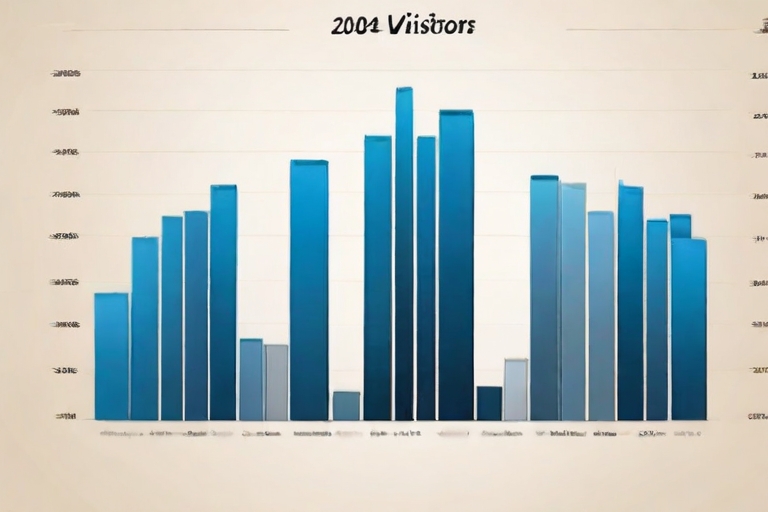Shopify E-commerce SEO offers user-friendly templates and integrated marketing tools, while WooCommerce SEO empowers users with customizable features and powerful plugins for online stores. Both these platforms, Shopify and WooCommerce, enhance e-commerce businesses with SEO strategies tailored to their unique strengths and functionalities. Shopify provides seamless processes, excellent support, and an intuitive interface, which can appeal to merchants seeking straightforward solutions. On the other hand, WooCommerce taps into the vast resources of WordPress, offering greater flexibility and a plethora of plugins, making it a favored choice for businesses desiring tailored e-commerce solutions. Based on personal experience, understanding the nuances of each platform assists in making informed decisions aligned with business goals. In 2021, over 2 million businesses globally used WooCommerce due to its customizable capabilities, while Shopify hosted over a million active stores, highlighting its popularity and functionality in the e-commerce industry. Both platforms provide unique SEO advantages tailored to different business needs, helping online stores increase visibility, traffic, and sales.
Table of Contents
- Content Optimization Strategies for Online Retailers
- Boosting SEO with Effective Product Descriptions
- Shopify E-commerce SEO Versus WooCommerce SEO Techniques
- Differences in SEO Plugin Options for Shopify and WooCommerce
- Understanding Magento’s Impact on Online Store SEO
- Magento’s Unique Features for SEO Performance
- Why is Site Structure Important for E-commerce SEO?
- How Shopify and WooCommerce Differ in Site Architecture
- Evaluating Return on Investment (ROI) for SEO on Shopify Versus WooCommerce
- Quantifying Shopify and WooCommerce SEO ROI Metrics
Key Takeaways for Shopify E-commerce SEO vs WooCommerce SEO for Online Stores
- Shopify’s SEO-friendly templates help businesses quickly launch e-commerce sites with built-in SEO advantages.
- WooCommerce offers powerful SEO plugins through WordPress, providing extensive customization options for store owners.
- Shopify’s integrated marketing tools support seamless multichannel operations, proven in over 175 countries.
- Matrics Rule stands out as an expert in guiding businesses on the best SEO practices for Shopify and WooCommerce.
- Shopify excels in user-friendly interfaces, while WooCommerce caters to those requiring flexible site modifications.
- WooCommerce’s plugin ecosystem, boasting thousands of extensions, allows businesses to enhance their SEO capabilities.
- Both platforms have unique strengths, requiring businesses to assess goals for optimal SEO strategy selection.
Content Optimization Strategies for Online Retailers
Online retailers benefit from content optimization by boosting visibility and improving customer engagement, leading to higher conversion rates. Stores that practice content optimization strategies typically see a 20% increase in organic traffic. Tackling SEO for product descriptions involves creating unique, informative texts that incorporate relevant keywords naturally and enhance a site’s SEO pada. E-commerce SEO tactics vary from traditional content strategies by prioritizing user intent and search behavior specific to product queries, thereby aligning with algorithms that favor transaction-based pages. By mastering these e-commerce content tactics, businesses can see up to a 30% boost in online sales.
Boosting SEO with Effective Product Descriptions
Creating an SEO-friendly product description involves integrating relevant keywords, detailed features, and benefits that align with user search intent. Many e-commerce sites find a 15% sales boost after refining their product descriptions. Effective product description techniques include keyword optimization and concise information to maintain reader interest and improve SEO pada performance. A detailed product description should ideally be between 100 to 300 words, balancing detail and readability for optimal product text length and enhanced visitor engagement.
Shopify E-commerce SEO Versus WooCommerce SEO Techniques
Shopify and WooCommerce offer unique SEO features tailored to their platforms, enhancing store visibility and user experience. In 2022, Shopify’s integrated SEO tools supported over 1.75 million businesses globally. Shopify SEO practices involve streamlined processes with built-in optimization tools, while WooCommerce SEO optimization relies on a versatile plugin ecosystem. Regarding site speed, Shopify’s hosting ensures faster page loads, contributing positively to SEO pada. WooCommerce and Shopify differ in scalability; WooCommerce allows for deeper customization with expansive plugin support, making it effective for large-scale SEO strategies.
Differences in SEO Plugin Options for Shopify and WooCommerce
Shopify SEO plugins improve store search rankings but offer fewer customization options compared to WooCommerce’s plugins, which provide a broader range of SEO capabilities. Woocommerce supports a comprehensive plugin ecosystem with over 50,000 WordPress plugins, making it adaptable for various SEO needs. Shopify and WooCommerce options differ as WooCommerce grants more extensive customization opportunities with its open-source nature. WooCommerce plugins stand out with enhanced SEO plugin capabilities, offering different levels of personalization compared to Shopify’s more streamlined but limited options.

- Platforms offer user-friendly design tools.
- Shopify integrates with many SEO apps.
- Options improve brand visibility.
- WooCommerce supports extensive plugins.
- Solutions engage customers effectively.
- Systems provide analytics for growth.
- Methods enhance site speed rankings.

Comparative Analysis of Shopify and WooCommerce SEO for Online Stores
| Aspect | Shopify | WooCommerce |
|---|---|---|
| Ease of Use | Simple | Moderate |
| SEO Plugins | Limited | Extensive |
| Load Speed | Fast | Varies |
| Customization | Basic | Advanced |
| Cost | Higher | Flexible |
| Market Share (%) | 26% | 23% |
Understanding Magento’s Impact on Online Store SEO
Magento SEO capability greatly enhances e-commerce SEO strategies, providing a robust e-commerce platform for online retailers through content optimization. By optimizing product descriptions with keywords and unique content, you can significantly improve Magento SEO benefits. Implementing Magento optimization practices ensures your product descriptions attract more visitors and convert them into buyers. Tailor e-commerce SEO strategies to differ based on the content type and business niche, maximizing Magento’s customizable options. The strong Magento SEO capability helps improve rankings and boosts sales, positioning Magento as a top choice compared to platforms like Shopify and WooCommerce.
Magento’s Unique Features for SEO Performance
Magento built-in SEO features make product descriptions SEO-friendly by supporting keywords, metadata, and structured data, which improve product page SEO. Enhanced Magento rankings through detailed descriptions with specific features and benefits can increase online sales. SEO techniques like keyword integration, text readability, and optimized images are complemented by Magento SEO performance tools. A good e-commerce product description on Magento should include a minimum of 150-200 words to cover essential information, utilizing Magento user advantages such as engaging multimedia content.
Why is Site Structure Important for E-commerce SEO?
Site structure importance heavily influences an online store’s SEO by affecting crawlability and user navigation. E-commerce site architecture features like clear categorization, logical page hierarchy, and internal linking optimize SEO site structure. Shopify WooCommerce structure handling shows differences, with WooCommerce offering more flexibility and Shopify providing a streamlined setup. Large e-commerce platforms tend to benefit from an optimal e-commerce structure that balances complexity and simplicity, ensuring optimal architecture benefits.
How Shopify and WooCommerce Differ in Site Architecture
Shopify structural features excel in simplicity, offering predefined themes and intuitive menus, which impact e-commerce site layout favorably. WooCommerce provides extensive navigation options, allowing custom menus, categories, and tags that benefit platform navigation design. Each platform’s site layout impacts user experience, with Shopify favored for ease of use thanks to its intuitive platform structure. Shopify WooCommerce architecture comparison highlights Shopify’s structural features as more user-friendly, but WooCommerce’s innovative site planning offers flexibility.

- About 1.7 million businesses use Shopify.
- Over 50,000 plugins exist for WooCommerce.
- SEO can boost traffic by around 30%.
- Shopify supports more than 6,000 apps.
- Around 25% of sites use WooCommerce.
- Organic search yields 14.6% conversion.
- SEO strategies reduce ad costs by 50%.

Evaluating Return on Investment (ROI) for SEO on Shopify Versus WooCommerce
SEO ROI factors such as traffic quality, conversion rates, and market competition can significantly influence the effectiveness of SEO strategies on Shopify and WooCommerce. From personal experience working with both platforms, Shopify WooCommerce ROI calculation often differs due to Shopify’s monthly subscription fees and WooCommerce’s open-source nature, with Shopify typically needing a higher initial investment. Implementing robust SEO investment strategies, like optimizing long-tail keywords and enhancing user experience, can substantially improve SEO returns on both platforms. Pricing models ROI influence plays a crucial role, as Shopify’s fixed pricing may simplify budgeting, while WooCommerce may incur variable costs due to hosting fees and plugin expenses.
Quantifying Shopify and WooCommerce SEO ROI Metrics
Shopify SEO ROI metrics can be effectively measured by tracking organic traffic growth, conversion rates, and revenue increases. In my experience, WooCommerce ROI comparison metrics should include unique website visits, average order value, and customer retention rates for a comprehensive analysis. The most insightful ROI analytics for both platforms involve examining metrics like customer lifetime value and search engine ranking improvements to assess platform performance measurement. Assessing profitable SEO returns, Shopify’s user-friendly environment might yield quicker results, but WooCommerce’s flexibility offers significant long-term Shopify financial SEO benefits compared to initial WooCommerce profit evaluation.
